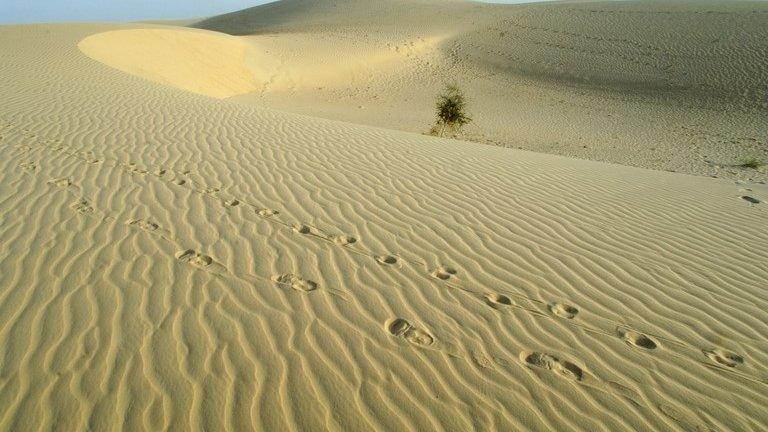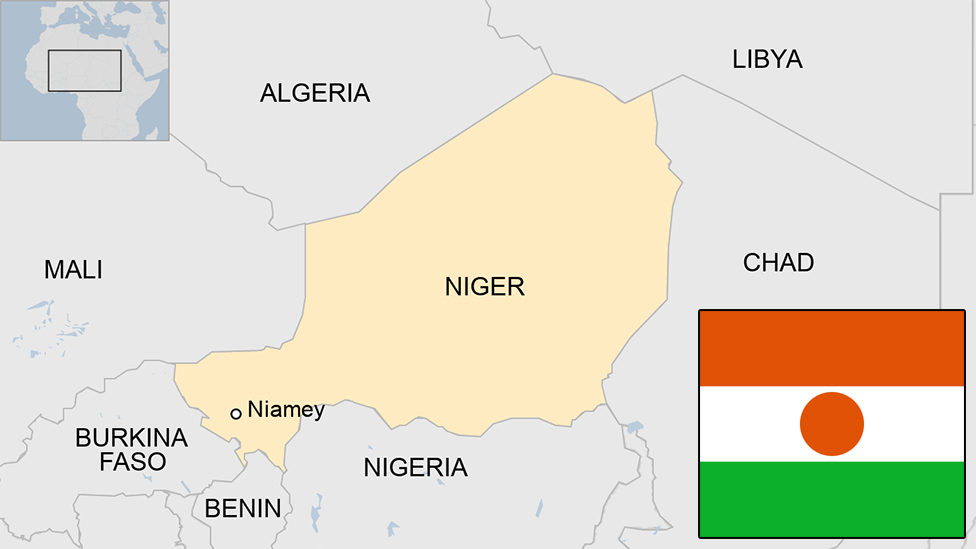Sahara deaths: Niger 'arrests' 127 departing migrants
- Published
14-year-old Shafa: "Some 15 of us died on the second day"
Officials in Niger have arrested 127 migrants as they attempted to cross the Sahara into Algeria, sources say.
They were reportedly caught as they were leaving the northern town of Arlit before dawn in five different vehicles.
The migrants - mainly men, with some women and a few children - are believed to be from Nigeria and Niger.
It comes days after 92 migrants were found to have died of thirst after two trucks broke down carrying them across the Sahara to Algeria.
Niger lies on a major migrant route between sub-Saharan Africa and Europe.
Those arrested on Saturday are now reportedly being arrested by police in Arlit.
'Criminal activities'
The government announced on Friday a plan to close illegal camps in northern Niger - which it referred to as "ghettos" - and said those involved in trafficking migrants would be "severely punished".
The country has been holding three days of mourning after the bodies of 52 children, 33 women and seven men were discovered on Wednesday.
Another five from the same convoy had been found several days earlier by the army.
Most of the dead were from the southern Niger district of Kantche.
The government said in its statement on Friday that the tragedy was "the result of criminal activities led by all types of trafficking networks".
About 5,000 African migrants are said to be currently stranded in illegal camps in the northern town of Agadez alone.
Most of these migrants - having paid large sums of money to traffickers - are waiting to cross the hundreds of kilometres of desert into Libya or Algeria, from where they can take boats to Europe in the hope of a better life there.
Niger has said that migrants found to be in the illegal camps will be handed over to international aid agencies.
The head of the International Office for Migration in Niger, Abibatou Wane, has welcomed the action by the government but warned migrants should only be repatriated to their home countries on a voluntary basis.
Migration routes across the Sahara desert

- Published1 November 2013
.jpg)
- Published31 October 2013

- Published4 August 2023
